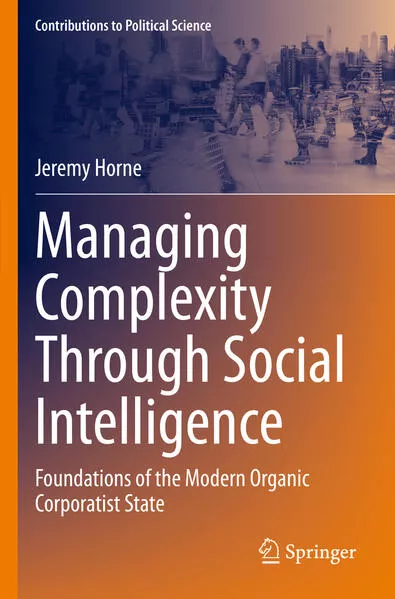
- Publikationen ca: 3
- Fragen & Antworten
Jeremy Horne
Managing Complexity Through Social Intelligence
This book presents solutions to problems that are total and based on thinking about how and why humans have organized themselves. It discusses how to avoid the now well-documented Holocene Extinction, propelled by climate change, wars, resource depletion, desertification, degrading knowledge quality, famine, and deterioration of societies overall.
Managing Complexity Through Social Intelligence
This book presents solutions to problems that are total and based on thinking about how and why humans have organized themselves. It discusses how to avoid the now well-documented Holocene Extinction, propelled by climate change, wars, resource depletion, desertification, degrading knowledge quality, famine, and deterioration of societies overall.
Managing Complexity Through Social Intelligence
This book presents solutions to problems that are total and based on thinking about how and why humans have organized themselves. It discusses how to avoid the now well-documented Holocene Extinction, propelled by climate change, wars, resource depletion, desertification, degrading knowledge quality, famine, and deterioration of societies overall.


